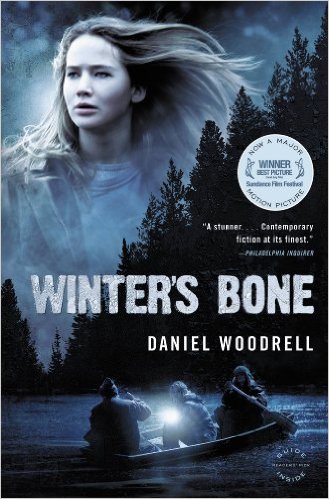
|
THE LIBERTARIAN ENTERPRISE Number 852, December 20, 2015 The important question is not "What's your religion?" but "How do you feel about the Bill of Rights?"
Winter's Bone
Attribute to L. Neil Smith's The Libertarian Enterprise We hear a good deal of how the War on Drugs devastates communities and families, but most of what the mainstream media sees fit to print is focussed tightly on "minority" neighborhoods in the cities. But the damage is just as great in the rural areas, and this is where Winter's Bone is set. Winter's Bone takes place in the Missouri Ozarks. Behind the resorts' luxuries, there are pockets of real rural poverty out there, poverty as bad as anything in South Central. The overall impression I got was of "Appalachia West," but without even the mining industry. Out there, about the only way to make money if you can't get hired by a resort is the illegal economy: drugs or moonshine. And asking questions can lead to a great deal of trouble, even if you're local. The whole place is living proof that Jim Goad's accusations in The Redneck Manifesto are largely true. And Woodrell lives in the area, so he knows whereof he writes. The protagonist of this novel, Ree Dolly, is sixteen years old, and as tough as can be. She doesn't have any choice; her father's in and out of their lives, her mother's mentally ill, and her two little brothers depend on her to provide for them. She had to drop out of school to provide for the family, hunting squirrels or doing whatever else it took to keep food on the table and the lights on. Then she gets word that her father's apparently skipped out on his bail on charges of cooking crystal meth, and if he doesn't show up, the bail bondsman is going to have to take their house. Ree knows that something bad's happened, and her only chance is to either somehow bring her father back to face the music, or find proof the law will accept that he's dead. She sets out to find out the truth, but finds out quickly that her neighbors, kin or not, are being very close-mouthed and discouraging, despite knowing of her and her family's plight. However, she persists, even in the face of discouragement, out-and-out lies, and physical intimidation. The drug trade is all through this book; it's a fact of life in this area, and nobody thinks any the worse of it. At one point, one of the people Ree goes to casually offers her a doobie to smoke on the way back home, and it's gratefully accepted. Other than drugs, the best thing going is the armed services. Nearly every family has members in the services, and in the movie, you see pictures of relatives in uniform in every house. Ree plans to join the Army the second she's eligible, "where she can travel with a gun and everybody has to help clean up," but at age sixteen, she's too young. And even if she were older, the problem of what to do with her mother and younger sibs would remain. Ree tries, and fails, to speak with the local boss of the meth trade, and when she tries again, his womenfolk beat the shit out of her—literally. She talks with her uncle, who was close to her father, and he tries to fob her off with lies. She treks through the mountains and woods to every place she might be able to get answers. I won't spoil the ending, but it's bittersweet and appropriate to this place and these people. In the movie version of this book, Ree was played by Jennifer Lawrence. Having read the book, I can see why Ms. Lawrence was a little reluctant to take the starring role in the Hunger Games movies, since there are real similiarities between Ree Dolly and Katniss Everdeen. Both young women are the main support of their families, both of them have mentally-ill mothers, both of them are caught in situations they didn't cause and can't really escape, both of them are skilled hunters. But of the two, I would say that Ree Dolly's the tougher one by far. In many ways, she's a heroine Heinlein would have not been ashamed to call his own. She would just say "I'm a Dolly. Bred an' buttered."
Just click the red box (it's a button!) to pay the author
This site may receive compensation if a product is purchased
|

